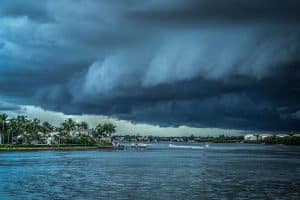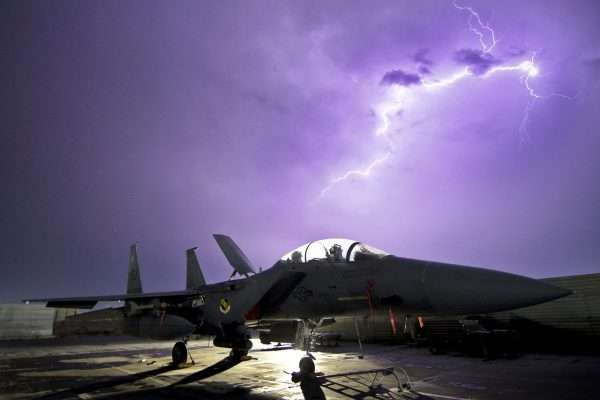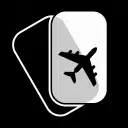Weathering the Storm: Air Charter Safety in Spring
With the change in seasons comes unpredictable weather, which can have a big impact on flight travel. How do private jets ensure air charter safety during thunder, rainstorms and wind? Following safety standards set out by the Air Charter Safety Foundation (ACSF), private jet pilots are well-quipped to deal with any changes in weather patterns. While the skies may look all clear at take off, some of the ways that pilots can detect thunderstorms and inclement weather is by:
- Planning ahead – checking weather patterns before the flight leaves
- Surveying weather while in flight
- Communication with air traffic controllers
- Weather radar technology
- Avoidance and diversion

Private jets have several advantages over commercial travel amidst spring storms.
Unlike a commercial airline, private jets do have some advantages in air charter safety when weather is a factor:
Commercial flights normally have a predefined, fuel-centric flight plan, whereas, a private charter flight has more options to avoid flying into a thunderstorm or other dangerous weather condition. A private jet has the advantage of being able to fly into more airports, including those with limited size runways that accommodate smaller aircraft. Having more airports to choose from is advantageous for any pilot when having to make a quick decision because of sudden weather changes. Private jets are usually designed to climb faster than airliners. They can also fly faster. This makes diverting an oncoming storm that much easier. When outside temperatures dip below freezing, it takes less time to prepare, de-ice and fuel a smaller aircraft. Shorter runways can also be de-iced much faster, causing less wait time for the plane to take off safely. In the case of an airport closure due to bad weather, a charter jet has the advantage of jumping the queue, so to speak, when the all-clear is given as it takes less time for the aircraft to be prepared for flight. All Stratos-approved air charter operators demonstrate an enduring commitment to air charter safety. They are required to be free of accidents involving serious injury to passengers and must have no major FAA enforcement actions taken against them, each for a minimum of five years. Safety first: Stratos Jets Charters is an ARGUS Certified Broker and is an Air Charter Safety Foundation Member with the ACSF. Stratos Jets Charters follows the Air Carrier Due-diligence Program and has received ARGUS Gold and Platinum flight-by-flight audit reports. For more information on how Stratos Jets Charters maintains safety standards and has your best interests at heart, visit www.stratosjets.com/why-stratos/safety
Are you ready to book your Milan and Paris charter flight yet?
Our friendly, expert air charter agents are here to answer questions or start your quote today. Don`t wait, call now and we'll get you on your way to your destination!
Call 888-593-9066











